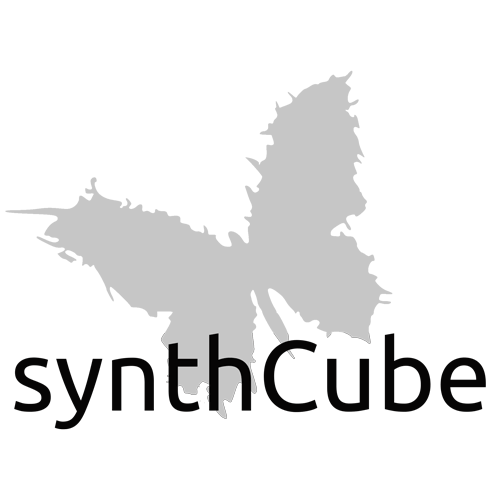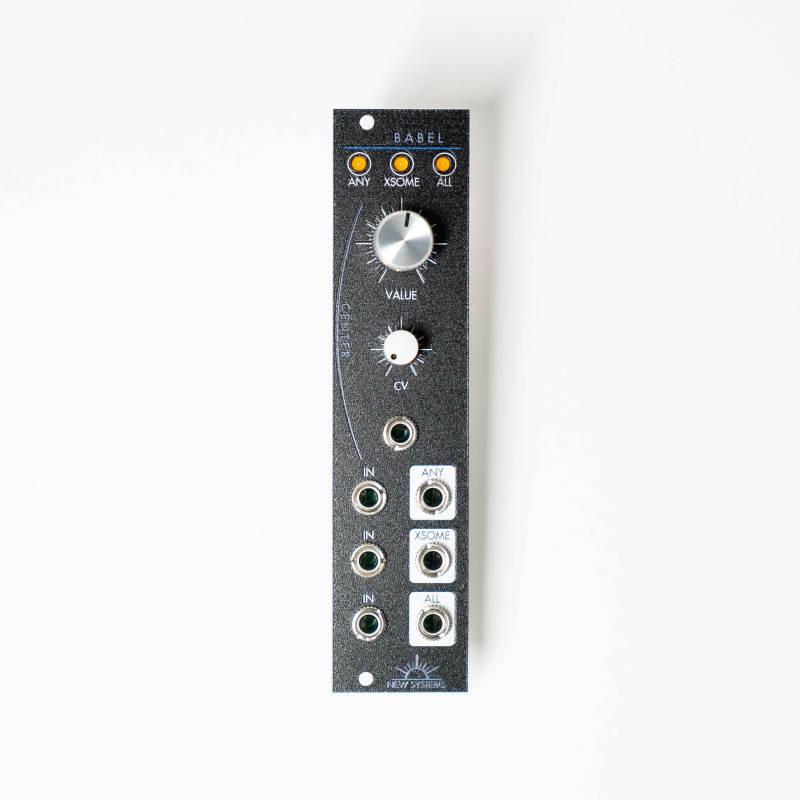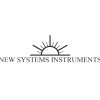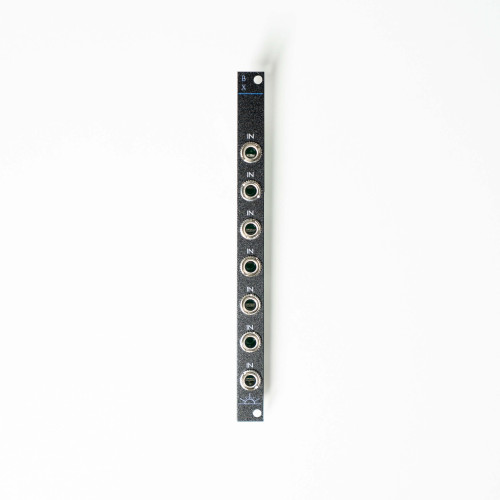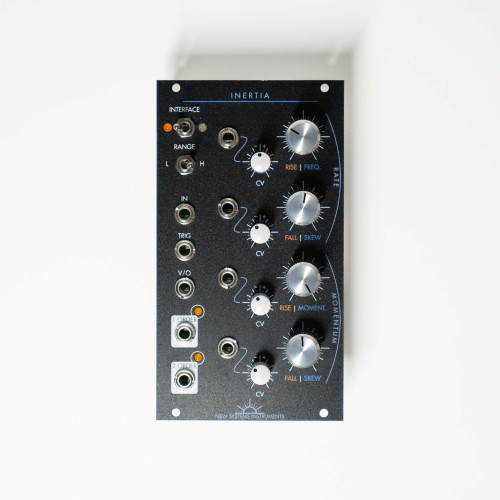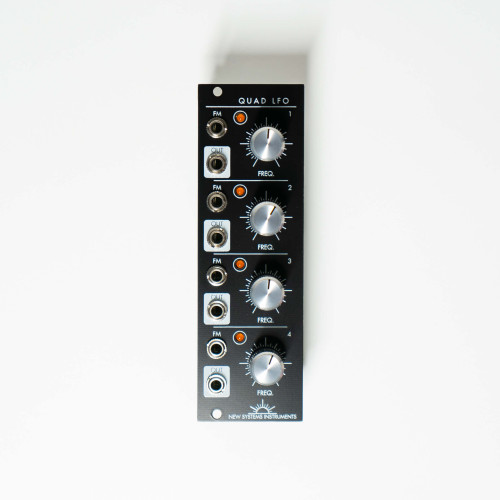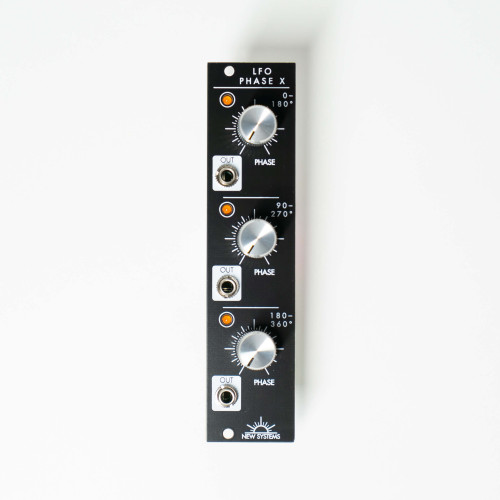New Systems Instruments - Babel
Babel is a tool for creating massive intermodulation, and a workhorse for analog logic, depending on your use and interpretation of its function. It provides three inputs, which can be arbitrarily increased with the chainable expander (see below). For each of those inputs, Babel outputs the maximum value (ANY), the minimum value (ALL), and the balanced middle value (XSOME), which follows along the center values of the input waves. What CENTER means is adjustable via knob and CV control. XSOME is particularly interesting, as it has the same general shape as a multiplication function, but with sharper edges. What this means it that Babel will create ring-mod like intermodulation—but with extra harmonics like those produced with a wavefolder, and with an arbitary number of inputs, instead of just two.
When viewed as a logic module, Babel takes any group of truth values and tells you whether any of them are true (ANY, the equivalent of “or” with just two values), whether all of them are true (ALL, the equivalent of “and” with just two values), and whether some, but not all of them are true (XSOME, the equivalent of “xor” with just two values). Turn CENTER all the way to the right for 0–+5V logic, or leave it centered for −5V–+5V logic—handy when your “logic” modules are really LFOs.
Specs
| Size | 6HP |
|---|---|
| Depth | 22mm |
| Power Consumption | +12V 44mA −12V 44mA |
| Output Swing | −10V–+10V peak |
| Input Range | −10V–+10V peak |
| Input Impedance | 30kΩ |
| Output Impedance | 150Ω |
| Output Drive | 2kΩ (min), 20kΩ+ (ideal) |
| Module Parameters | |
| Panel Size | 6hp |
